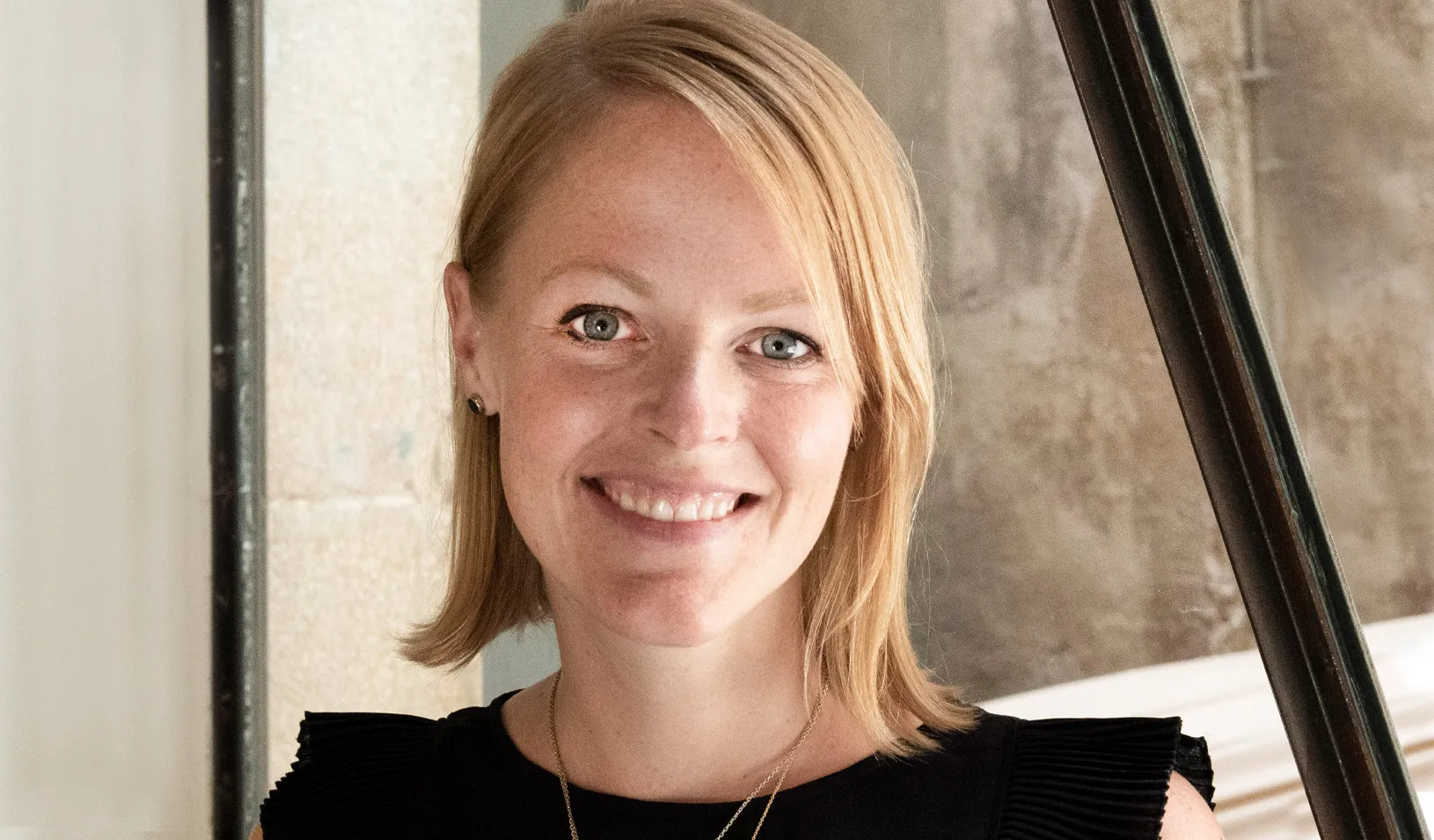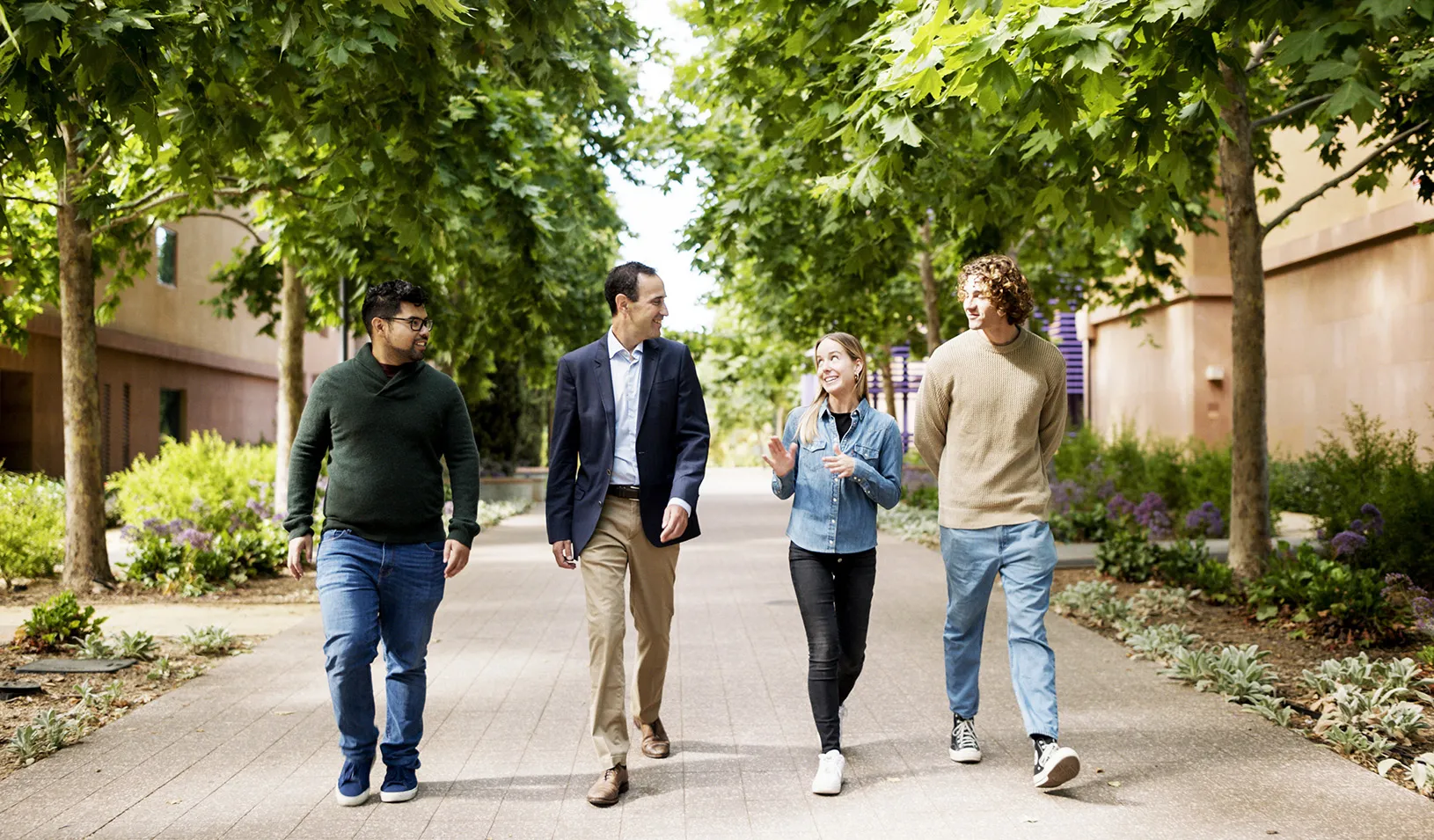Sustainable Business Approaches Explored In New Executive Program
Uncommon gathering of people from private, public, and nonprofit sectors come together to grapple with tough issues.
September 01, 2007
With the pristine Fallen Leaf Lake as backdrop, a Stanford Graduate School of Business executive education class spent a week in the Sierra Nevada trying to answer some of the toughest questions facing businesses today: How can companies operate without doing harm to the environment? What will it cost? Is it worth it?
It was an uncommon gathering of people who would not typically expect to sit together to grapple with these issues.
There were executives from Oracle, Hewlett-Packard, and Conoco Phillips. There were advocates from The Nature Conservancy and Ocean Conservancy. One participant was the founder of a Panamanian nonprofit promoting eco-tourism. Another, an eco-strategist for a Chicago-based global advertising agency focused on environmental sustainability.
The Business Strategies for Environmental Sustainability Program, an executive offering done in conjunction with the Business School’s Center for Social Innovation, underscored an important business trend: More companies in a variety of industries are looking hard at the way they do business to see how to do the least harm to the environment. They do so because of growing public awareness about environmental damage, because their competitors are doing it, and because it is good for business in general.
But as the program, led by William Barnett, highlighted, going green isn’t always easy. The biggest issue is cost.
“If we increase efficiencies without incurring increased costs, we don’t have to pay more,” said Barnett, the Thomas M. Siebel Professor of Business Leadership, Strategy, and Organizations at the Business School. “But to the extent that we’re looking at improvements beyond increases in efficiency and they require bringing in costs, the price will go up. That’s just the way it is.”
The 31 participants (including a CEO, five vice presidents, and more than a dozen managers) tackled these concerns by delving into the experiences of specific businesses and organizations. The case studies raised important questions.
How should a successful supermarket offering organic food products respond to criticisms from advocacy groups arguing that it is not green enough — and to the growing challenge from bigger competitors moving steadily into its niche market?
How can a California lumber company hoping to become the leading supplier of environmentally friendly building materials deal with the pressures of competition, diverse customer tastes, and changing building standards?
How has a major coffee retailer’s decision to buy high-quality beans only from farmers who are not exploited by their trading partners and who use environmentally sound farming methods affected its bottom line? With the growing public awareness of global warming and other serious environmental problems, many companies have found that being green, either by maintaining an environmentally sound supply chain or reducing energy consumption, pays off, Hau Lee said.
“This is a dimension that will be important in business. This is a dimension that people care about.” Lee is the school’s Thoma Professor of Operations, Information, and Technology.
Erica Plambeck, associate professor of operations, information, and technology, stressed the importance of providing “credible information” and standards about one’s efforts to go green.
“Businesses must find a way to create a willingness among customers to pay for environmental quality,” she said. “They must establish credible information about the environmental attributes of products.”
For environmental advocacy groups, the business world’s ongoing bid to go green presents opportunities — but also challenges.
One is the inevitable tension between the purists and the pragmatists in the environmental movement.
“Some of my fellow students don’t exactly have a warm spot in their hearts for activist groups that pursue radical or semi-radical actions to “ ‘speak truth to power,’” Mark Powell, vice president for fish conservation at Ocean Conservancy, wrote in his blog.
He argued that it is important for environmental groups to work with major corporations because that allows these organizations to effect positive changes and reach a broader audience.
Kenneth Siegler, worldwide director of Hewlett-Packard’s Green Initiative Program, affirmed this, saying: “I’m really concerned that if we don’t have a two-way street or an open door policy, we will not be able to implement a lot of these processes.”
But the purists — the groups who set the highest standards for environmental sustainability — also have a role to play, some participants agreed.
“We need some purists not working with [corporations], keeping us honest,” said George Leonard, senior science manager for the Seafood Watch program of the Monterey Bay Aquarium.
Plambeck underscored this point. “We need the critics as well as the collaborators.”
Rich Kelleman, vice president and eco-strategist for Rivet, a Chicago-based marketing company, said the program offered “a ton of opportunity in exploring sustainability in the marketing/communications world. Not only in communicating steps that our clients are taking, but in fundamentally rethinking the way that an agency works/operates and the canvases that we use for our creative product.”
Elizabeth Trask, manager of corporate partnerships at Washington, D.C.-based Environmental Defense, said it was “an amazing opportunity to think through some of the toughest environmental issues of the day with a dedicated group of professionals from industry, government, and nonprofits, guided by brilliant faculty.”
While the program explored issues that have been discussed and debated for years, Powell wrote in his blog, “The program definitely took me to new heights on this line of thinking. I heard specific case studies of people building alignment where there was once no alignment, to real advantage. I heard business leaders in the class groping for solutions, just like me. Did you hear that? They were looking for solutions, just like me. What do ya know?! As they say where I come from: ‘Well, shut my mouth.’ And maybe, once or twice, I did.”
The program, he added, changed his attitude toward business schools which have typically been viewed as a place where people learn how to make money.
“Why can I learn so much from a business school perspective?” he writes. “Simple really, the study of business strategies is just the study of change, and I’m in the business of promoting change … I guess I have to admit that a business school perspective isn’t actually evil. That’s a surprise since business schools are viewed as the brain trust of capitalism, the place where people go to learn how to make money, and environmental dogma has sometimes held that money and capitalism are the enemy.”
On the other hand, another participant, Paul A. King, vice president and sustainability executive of Bovis Lend Lease, said the program gave him an opportunity to see business and environmental issues through the eyes of nongovernmental organizations.
“Your new perspectives on business mirror my new perspective on NGOs,” he said in a comment on Powell’s blog. “Professor Barnett pulled off something wonderfully stimulating and motivating here.”
Powell said his “biggest take-home message” from Business Strategies for Environmental Sustainability was that “change advocates can learn a lot from studying business strategies … Kudos to organizer Professor ‘Wild’ Bill Barnett and his team for a truly great learning experience. This very strong program is in its first year and deserves to continue.”
By Ben Pimentel
For media inquiries, visit the Newsroom.
Explore More
Erin Nixon Joins Stanford GSB as Assistant Dean of Admissions

Nia Rose Froome, MBA ’23: Making Local, Fresh Food Available for All

New Research Fund Promotes Responsible Leadership for the Next Century
